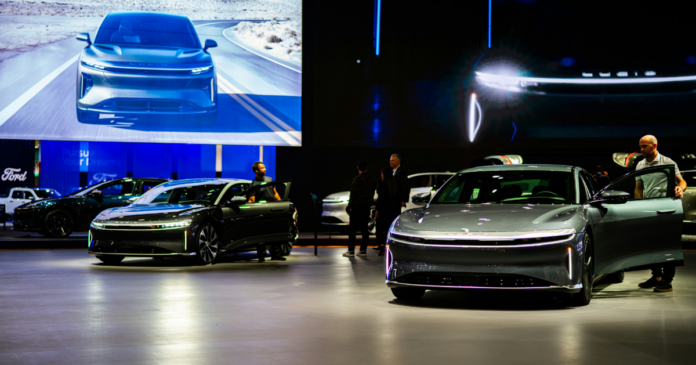For the second year in a row, Canadians’ interest in electric vehicles has declined, with fewer than half of Canadians now saying they plan to make their next car purchase an electric vehicle.
According to a recent survey conducted by AutoTrader, respondents who did express interest in buying an EV for their next vehicle, primarily cited the high cost of fuel as their main motivator.
Other motivators include environmental friendliness and low maintenance.
“Overall, while almost half of non-EV owners are open to buying an EV for their next vehicle, interest in EVs has declined for the second year in a row, from 68% in 2022 to 56% in 2023,” said Tiffany Ding, director of insights and intelligence at AutoTrader.
Canadians who were not interested in buying an EV for their next vehicle cited concerns of limited long-distance travel, higher purchasing costs, and the “inadequate availability of charging stations.”
Another primary concern with EVs was their capabilities – or lack thereof – in colder temperatures.
The data collected from AutoTrader’s survey reveals a direct correlation between the price of gas and consumer interest when it comes to EVs. When gas prices peaked in 2022, EV interest increased too.
However, as fuel costs begin to decrease, so do consumers’ interest in EVs.
Other issues such as higher interest rates and inflation have also pushed Canadian consumers away from the desire for an EV, when compared to gas-powered alternatives.
Some respondents expressed interest in more hybrid model EVs, which have a gas tank but also offer some of the benefits of electrification.
“Purchase consideration for traditional gas-electric hybrids (HEVs) and plug-in hybrids (PHEVs) has been increasing,” reads the survey. “Accordingly, 62% (up from 52% in 2023) of EV intenders would consider buying an HEV, and 60% (up from 54% in 2023) would consider buying a PHEV.”
The Trudeau government implemented its Zero Emissions Vehicle mandate last year, which will require all new light-duty vehicles sold in Canada to be zero-emission by 2035.
However, when asked about the federal government’s target, most respondents (75%) were unaware of it.
Despite being unaware of the mandate, that same cohort believed the government’s goal to be “unlikely” attained, based on the “current inadequate charging infrastructure or a change in political power that could revoke or amend the ZEV mandate timeline.”
While interest may be declining, the costs for both new and used EVs have also been dropping, with the average price of a new EV down by 17.6% last year and an 11.4% decrease on used models, year-over-year.
Additionally, the overall supply of EVs has skyrocketed, with inventory of new EV and hybrid models spiking by 145%.
“Looking at the inventory levels, new battery electric vehicle (BEV) availability has been skyrocketing as more OEMs (Original Equipment Manufacturer) manufacture EVs,” said Baris Akyurek, AutoTrader’s vice-president of insights and intelligence.
Another reason for dissuaded consumers could be the increased problems that come with an EV. A Consumer Reports survey found that electric vehicles were far less reliable than conventional gasoline-powered cars.
The survey, encompassing vehicles from 2000 through 2023, with a few early-introduced 2024 model years, revealed that electric vehicles encounter 79% more problems than gas vehicles.















